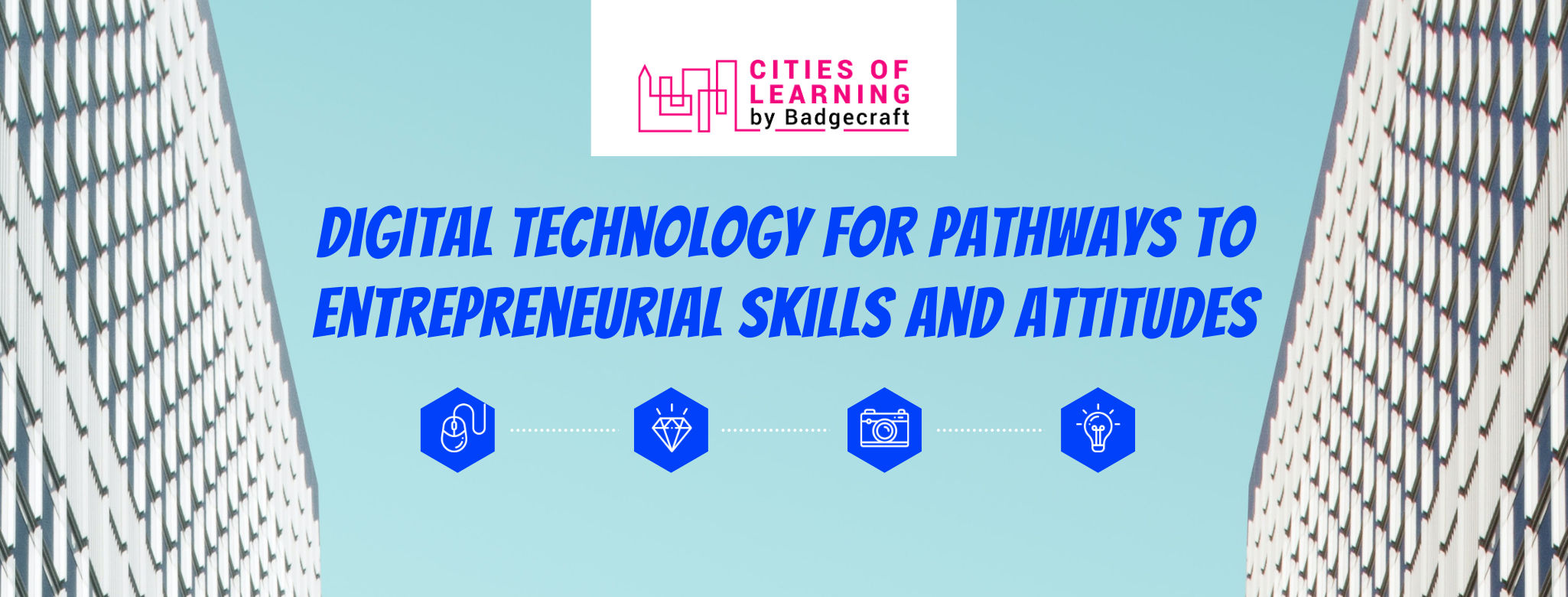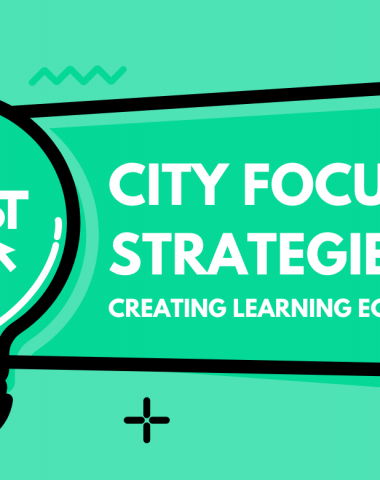Digital technology for pathways to entrepreneurial skills and attitudes
Various social and economic issues cause an increased distance between people who “can” and “cannot”. What demands are made of today’s adults? To what extent are these requirements realistic? When do high expectations lead to a feeling of personal and or professional failure?

Photo by Annie Spratt on Unsplash
The context
To give the quality education to those adults who need it the most, partners within the Cities of Learning Network from Lodz University of Technology (Poland), Skills Connect (The Netherlands), Breakthrough (Curacao) are aware that within the adult education sector we need to be aware of the current trends in the personal and professional life of people, trends in society, and the trends in the career opportunities. There is a need to support adults who often develop specific hard skills, have entrepreneurial knowledge, but lack the right entrepreneurial mindsets. For example, managing an effective business or finding the right job around their competences and supporting themselves on personal and career level.
Therefore the project ‘Digital technology for pathways to entrepreneurial skills and attitudes’ has been developed and approved by Erasmusplus Adult Education in The Netherlands. The project is focused on competences, qualification and endorsement frameworks and partners will connect existing entrepreneurial adult education programmes for disadvantaged adults with fewer opportunities. They will use entrepreneurial frameworks to recognise, endorse, and acknowledge prior learning, on the job learning and learning in the educational programmes using Open Badges digital technology.
Project aims and activities
- To develop capacity of partner organisations to use Open Badges technology to assess, validate and recognise entrepreneurial skills and attitudes of adult learners;
- To develop endorsement schemes for adult education programmes, especially for adult learners with fewer opportunities;
- To create new adult learning opportunities by utilising and developing digital technology solutions available on the Cities of Learning platform;
- To promote new adult learning opportunities in participating countries and at the European level.
Participants of the adult education programmes carried out by the partners:
- unemployed, non- or undereducated young adults, adults who not yet recognise their prior learning, have an entrepreneurial attitude and need better guidance into becoming an entrepreneur.
- refugees who are mid- and high educated residents and newcomers but they are lacking the right certificates to enter the labour market.
Partners will develop:
- “Entrepreneurial skills pathways for adult learners”,
- “Endorsement schemes for entrepreneurial skills” and
- “Skills pathways and endorsement functionality on Cities of Learning platform”.

Photo by Sean Foley at unsplash
Description of activities:
There will be staff training on digital technology for pathways to entrepreneurial skills. Also two Study visits will take place, where the focus will be on adult learning pathways to entrepreneurial skills and on endorsement schemes for entrepreneurial skills. In 2022 the results will be shared via several local and international multiplier events.
The desired impact:
- adult learners putting their knowledge, skills and attitudes into actions;
- adult learners are self-starting to find a job (‘employability’) or to start a business;
- adult education organisations may change their approach to teaching and learning;
- societal change and social inclusion;
- economic growth – because of the new entrepreneurs and new ‘intrapreneurs’;
- adding value to existing businesses as entrepreneurial skilled employees).
Project partners

Mark Vlak, Skills Connect: “In Breda, we will try to reach people with a migration background and without a corresponding or recognised diploma. We will achieve this through practical learning in a working environment. These people will be able to find work in sectors for which few people are available. Practical learning is a part of secondary vocational education in which work processes are learned. If a work process is assessed as satisfactory, it can be endorsed with a statement of practice in the MBO. In addition to teaching work processes, additional skills, such as entrepreneurial skills, are extremely important.
This target group is currently outside the workforce and needs resilience to rise to the challenge and overcome disappointment. How can entrepreneurial skills help? You can of course use these skills at different levels such as being a manager. You can also facilitate small processes in the workplace, come up with creative solutions or, for example, tackle conflict management between colleagues. Most important entrepreneurial skill for this group is to become a more independent self-starting working individual to participate in the inclusive society.
We will offer these skills to this target group via Cities of Learning as a learning moment and recognise them using the Entrecomp framework. We hereby meet the Lifelong learning goals. Entrepreneurial skills are basic skills that give you resilience. This resilience makes you more sustainable for the employer. If we can deliver an employee to a potential employer and demonstrate that he or she is resilient and therefore has a lower risk of dropout. This all is beneficial for social inclusion.”

Photo by Matthew T Rader on Unsplash
Eunice Eisden, Deputy Minister Plenipotentiary of Curaçao: “Curacao is a young country that is continuously working on its emancipation. That is one of the reasons that makes it important that our young people learn entrepreneurial skills and become successful entrepreneurs, set up their own companies and no longer only work for others. Curacao already has built expertise around entrepreneurial skills. The Ministry of Economic Development promotes entrepreneurship through various programs. I am happy that some schools’ entrepreneurial skills are part of the curriculum. For example some primary schools, children take limes from the trees and sell the juice to become small entrepreneurs. This approach supports taking the lead in shaping their own future, which is important. Entrepreneurial skills can also be used while working for an employer.
As an island, we have to keep up with the worldwide leading developments. 21st century skills set is a development of such kind. To develop Entrepreneurial skills we find international cooperation very important.”





Add Review